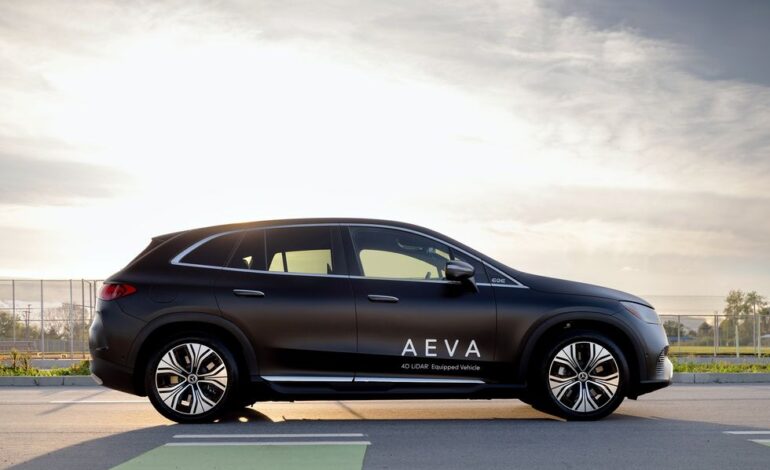Aeva Technologies Launches Advanced Non-Contact Motion Sensor

Aeva Technologies, based in Mountain View, California, has introduced the Aeva Eve 1V, a state-of-the-art non-contact motion sensor designed for precision in industrial manufacturing. Using its proprietary frequency modulated continuous wave (FMCW) sensing technology, the Eve 1V promises accurate, repeatable, and reliable measurements of an object’s motion without any physical contact. This innovation is particularly vital in the manufacturing sector, where there is an increasing demand for faster production rates, tighter tolerances, and zero defects.
With traditional measuring tools like encoders and measuring wheels often leading to slippage or wear, the Eve 1V aims to address these challenges. According to Mina Rezk, co-founder and Chief Technology Officer at Aeva, “Eve 1V was built to solve that exact gap: A compact, eye-safe, non-contact motion sensor that delivers sub-millimeter-per-second velocity accuracy without touching the material.” This capability allows manufacturers to reduce errors, avoid damage to materials, and minimize downtime due to maintenance.
Transforming Manufacturing with FMCW Technology
The Eve 1V utilizes a unique approach compared to traditional lidar systems, which rely on sending bursts of light and waiting for the return signal. Instead, the FMCW technology continuously emits a low-power laser while varying its frequency. By analyzing the frequency shifts in the returning signals, the device can measure both distance and velocity in real-time. This ability to measure velocity along with three-dimensional positioning categorizes it as a type of 4D lidar.
This new sensor is part of the Eve 1 family, following the earlier launch of the Eve 1D, which serves as a compact displacement sensor capable of detecting movements at the micrometer scale. Rezk emphasizes the versatility of the FMCW platform, stating, “Together, Eve 1D and Eve 1V show how we can take the same FMCW perception platform and tailor it for different industrial needs.”
Future applications for the Eve 1V may extend beyond manufacturing to fields such as robotics, logistics, and even consumer health. The technology could facilitate the detection of micro-vibrations on human skin, potentially enabling accurate pulse and blood pressure readings.
Advantages of Non-Contact Measurement
Aeva’s FMCW architecture, initially developed for long-range applications in the automotive sector, has been adapted for precise motion sensing in manufacturing environments. This adaptability allows the sensor to track extremely slow movements, down to fractions of a millimeter per second, while also being capable of monitoring faster motions across greater distances.
The non-contact nature of the Eve 1V presents several practical benefits in a factory setting. These include maintenance-free operation, as there are no measuring wheels to replace or recalibrate; material friendliness, allowing for the measurement of delicate or textured surfaces without the risk of damage; and operational robustness, which minimizes slippage errors and reduces service interruptions. Rezk notes that these advantages lead to increased uptime, steady throughput, and less material waste.
When measuring velocity, engineers typically rely on encoders, laser velocimeters, or camera-based systems. While traditional encoders are cost-effective, they can degrade over time. Laser systems are precise but often large and costly, and camera-based methods require controlled conditions for accurate measurements. The Eve 1V strikes a balance by offering precise, consistent velocity measurements without the need for contact.
The sensor’s design ensures minimal maintenance, reducing the long-term operational costs associated with traditional systems. Its technology is built on silicon photonics, allowing it to scale effectively from micron-level sensing to millimeter-level precision over longer distances. This results in cleaner, more repeatable data that outperforms conventional lidar and camera-based systems.
Aeva anticipates commencing full production of the Eve 1V in March 2026. The introduction of this sensor comes on the heels of Aeva’s recent partnership with LG Innotek, a subsidiary of South Korea’s LG Group, through which Aeva will supply its Atlas Ultra 4D lidar technology for automotive applications. The collaboration aims to further expand the use of advanced sensing technology in consumer electronics, robotics, and industrial automation.






